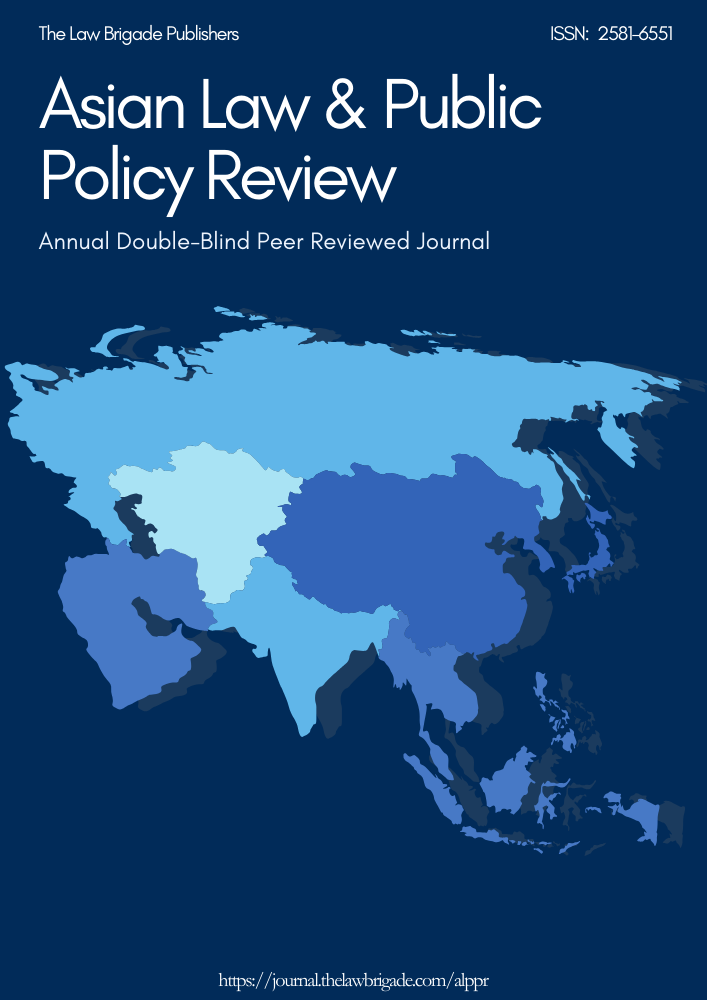Role of Government in Securing the Rights of Disabled People, An analysis on Persons with Disabilities Act, 2016
Keywords:
Disablity, human rights, inclusive societyAbstract
Data shows that out of the 121-crore population of the sub-continent of India, a staggering 2.68 crore person are disabled which is 2.21% of the total population. Majority of the disabled population resided in the rural areas, that is, 69% of the total disabled population. The life conditions of the normal people in rural areas itself is not wholesome, which means the plight of the disabled population is unimaginable. The Lawmakers of the country seeks to improve the life of the persons with disabilities through the Rights of Persons with Disabilities Act, 2016. There are seventeen chapters and one hundred and two sections in the Act. This thesis will be focusing on four significant chapters of the Rights of Persons with Disabilities Act, 2016, that is, Rights and Entitlements of disabled people (Chapter II), Education of disabled people (Chapter III), Skill Development and Employment of disabled people (IV) and lastly, Duties and roles of appropriate Governments (Chapter VIII). We have given greater prominence to the chapters dealing with Education and Employment of Persons with Disabilities. In this thesis we study in detail each of these chapters and the schemes and policies related to that chapter, that have been formulated by the Government for the betterment of the lives of the disabled citizens of India. We also review the Duties and Responsibilities of the Government, that is to say, what the appropriate Governments must do for making the day to day life of a disabled Indian easy.
Downloads
Downloads
Published
Issue
Section
License

This work is licensed under a Creative Commons Attribution-NonCommercial-ShareAlike 4.0 International License.
License Terms
Ownership and Licensing:
Authors of research papers submitted to any journal published by The Law Brigade Publishers retain the copyright of their work while granting the journal specific rights. Authors maintain ownership of the copyright and grant the journal the right of first publication. Simultaneously, authors agree to license their research papers under the Creative Commons Attribution-ShareAlike 4.0 International (CC BY-SA 4.0) License.
License Permissions:
Under the CC BY-SA 4.0 License, others are permitted to share and adapt the work, even for commercial purposes, provided that appropriate attribution is given to the authors, and acknowledgment is made of the initial publication by The Law Brigade Publishers. This license encourages the broad dissemination and reuse of research papers while ensuring that the original work is properly credited.
Additional Distribution Arrangements:
Authors are free to enter into separate, non-exclusive contractual arrangements for distributing the published version of the work (e.g., posting it to institutional repositories or publishing it in books), provided that the original publication by The Law Brigade Publishers is acknowledged.
Online Posting:
Authors are encouraged to share their work online (e.g., in institutional repositories or on personal websites) both prior to submission and after publication. This practice can facilitate productive exchanges and increase the visibility and citation of the work.
Responsibility and Liability:
Authors are responsible for ensuring that their submitted research papers do not infringe on the copyright, privacy, or other rights of third parties. The Law Brigade Publishers disclaims any liability for any copyright infringement or violation of third-party rights within the submitted research papers.


